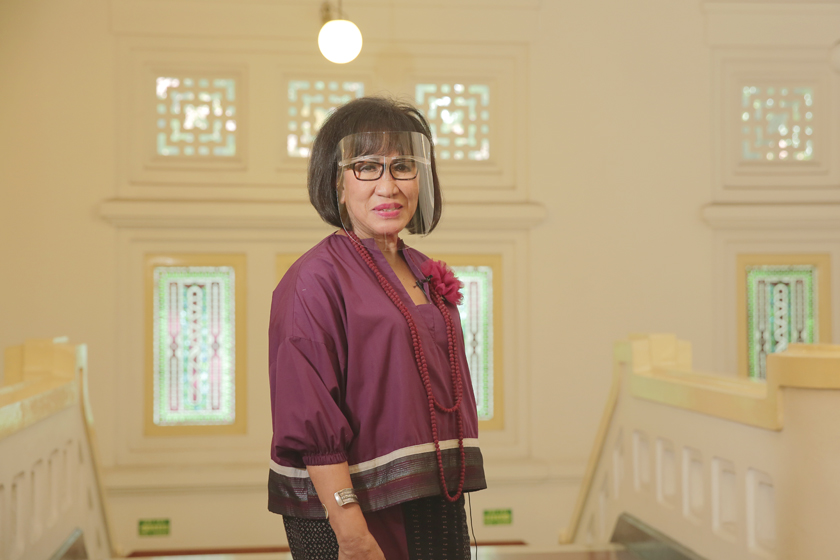
08 Dec 2020
 Winner of the 2020 Alumni of the Year Award: Prof Dr Herawati Sudoyo
Winner of the 2020 Alumni of the Year Award: Prof Dr Herawati Sudoyo
"Gene Hunter" Professor Herawati Sudoyo devotes her life to science for humanity.
Molecular biologist Professor Herawati Sudoyo, who has been awarded the 2020 Australian Alumni of the Year, believes the highest achievement for researchers is to use their work to benefit humanity and to improve people's welfare.
"For example, using our methods and knowledge for identification in terrorism cases, child trafficking or wildlife trafficking," said Professor Herawati, one of the founding members and Deputy Director for Fundamental Research of the Eijkman Institute for Molecular Biology.
In this COVID-19 pandemic, Professor Herawati and her colleagues at the Eijkman Institute has been challenged to solve the problem of detecting and treating the virus, which has killed more than 1.4 million people and infected more than 61 million globally.
When the pandemic hit Indonesia, the government assigned the Eijkman Institute to be one of the institutions running Polymerase Chain Reaction (PCR) testing to diagnose COVID-19, and also to do research on the use of plasma convalescent treatment of COVID-19 patients.
But the critical task for the Eijkman Institute is developing the so-called "Red and White" vaccine. The Institute is in the process to sign a Memorandum of Understanding (MoU) with Australia’s Commonwealth Scientific and Industrial Research Organization (CSIRO) in this mission - joining research institutes and pharmaceutical companies around the world in the race to find vaccines for COVID-19. If successful, Indonesia will have a vaccine produced entirely at home.
"I am very proud that our knowledge has allowed the institution to participate in tackling the pandemic, in detection, treatment and vaccine development," said Herawati, who is also a member of the government's COVID-19 Taskforce. "Particularly for the vaccine, I believe we need to have our own vaccine."
By the end of November, COVID-19 has infected 538,883 people in Indonesia since it was detected in early March, according to data from the national Covid-19 Task Force. The country’s death toll from Covid-19 was 16,945, the highest in Southeast Asia.
Professor Herawati's involvement on COVID-19 pandemic management adds to a long list of achievements over more than 25 years. In 2004, she contributed to identifying the perpetrator of a suicide bombing in front of the Australian Embassy in Jakarta, and she has worked to trace the origin of Indonesian ancestors.
After graduating from the University of Indonesia Faculty of Medicine in 1977, Professor Herawati opted to stay and teach medical biology there rather than pursuing specialist training, to be able to spend more time with her young children. To advance her teaching career, she took a Master's degree in biochemistry the University of Indonesia followed by a PhD program at Monash University from 1985 to 1990.
"Once you choose preclinical field such as in medical biology, the only way to advance your career is pursuing higher education. I brought along my two children, to give me moral support. Leaving them behind was not a choice," said Herawati, who received the Australian Alumni Award for Scientific and Research Innovation in 2008.
For her PhD program, she had the opportunity to take molecular biology, a newly field with a rapid development and very competitive. Molecular biology is a universal language that gives answers to basic medical research questions and others.
"Why are we sick? What causes an illness? Why are clinical symptoms different in one person to another? These can be answered by molecular biology approach," said Professor Herawati.
Her research project for her doctoral program was the molecular pathology of mitochondrial diseases. Mitochondria is an organelle cell which can be found in nearly every cell in a human body, turn oxygen and substances from food or drink that we consume into energy use for cell metabolism. Fundamental information concerning the formation of functional mitochondria in human is essential for our understanding of these disorders, and in their predictive and therapeutic implications. Mitochondrial DNA can be used as a genetic marker in population studies. The knowledge can also be used in other fields, such as wildlife forensics.
Her experience of studying in Australia significantly shaped her future career in research.
"My supervisor said it doesn't matter whether the disease is relevant or not; the important thing is having the knowledge, ability, and analysis to do troubleshooting. Failure encourages us to learn more and to find solutions," she said.
When she returned to Indonesia from Australia, Professor Sangkot Marzuki, her doctoral supervisor at Monash University, asked her to join a team of scientists to revive the Eijkman Institute.
Once a world leading centre for tropical medicine, the Institute founded in 1888 by Dutch scientist Christiaan Eijkman was closed in the 1960s due to economic hardship in Indonesia.
The revived Eijkman Institute focuses on the research of diseases widespread in Indonesia, such as malaria, hepatitis, dengue and non-communicable diseases, such as thalassemia. Eijkman himself won a Nobel Prize in 1929 for his discovery of the relationship between vitamin B1 deficiency and beriberi disease.
Professor Herawati said a long and established collaboration with Australian institutions had contributed to rebuilding the Eijkman Institute. Many of its senior staff members pursued their graduate studies and PhDs in Australia's top universities.
At the Jakarta-based Institute, Professor Herawati started to develop an interest in molecular anthropology. In particular, she was researching the genetics of the Indonesian population to map their origins, migration, and the spread of disease.
As part of this research, the professor and her team travelled across Indonesia, sometimes to very remote islands, to collect blood samples. She has visited at least 13 remote islands to research more than 130 communities. This genetic population research has earned her and the team a nickname - "the gene hunters".
In 2004, while in the midst of this mapping project, a suicide car bomb hit the Australian Embassy in Jakarta. The extent of the damage made it impossible to identify the perpetrator using conventional methods, such as fingerprints or dental records.
The Eijkman’s forensics DNA team and a team from the National Police Medical and Health Center developed a strategy to collect samples and identify the perpetrator by matching their DNA with their relatives' DNA. The Eijkman Institute's genetic populations database made it possible to trace and identify the perpetrator's in just two weeks. It also led the Eijkman Institute to establish a new Forensic DNA Laboratory.
Over the years, Professor Herawati and her team have made groundbreaking findings in genetic populations. A 2005 study by Professor Herawati and colleagues from New Zealand, the United States and France postulated that Indonesians were the ancestors of people of Madagascar.
Her work has earned numerous accolades, including an honorary badge from the National Police’s Medical and Health in 2007, the Habibie Award in 2008, and many awards related to her effort to promote women in science. In 2012, the prestigious medical journal The Lancet named her "The Champion of Basic Science in Indonesia."
Beyond her research, Professor Herawati has also been active in supporting women to pursue a career in Science, Technology, Engineering and Mathematics (STEM). For the past 15 years, she has been on the jury for the L'Oreal-UNESCO For Women in Science International Awards, which honour talented women in STEM. Professor Herawati has spoken out about the challenges she faced as a female researcher balancing her career and raising her family.
And as the list of her achievements continues to grow, Professor Herawati does not intend to stop.
"As a Monash University alumna, I use its motto – ‘I am still learning,’” she said. “I'm still learning new knowledge and transferring what I learn to my colleagues”. She continued, “I like the quote Albert Einstein: Once you stop learning, you will start dying.”
Share this article on:
Back to Top

